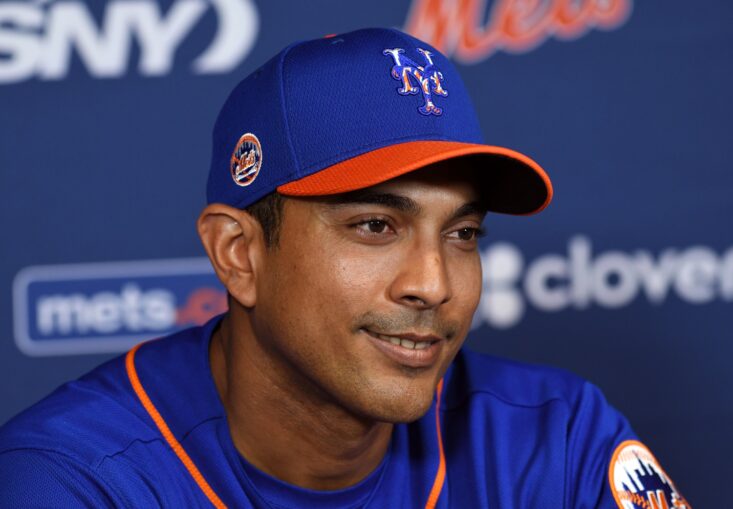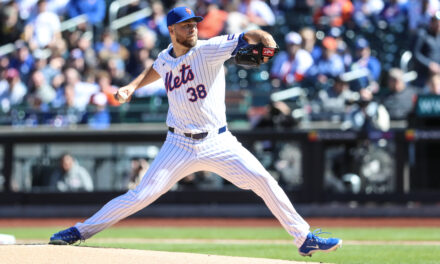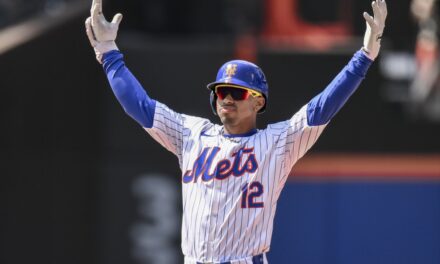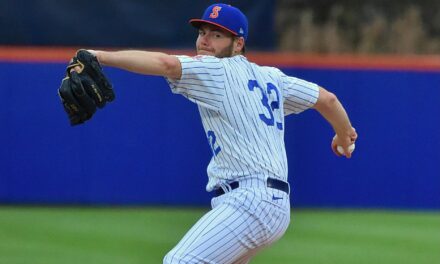
The 2020 off season will be an active one for the Mets. There will likely be a cascading of changes, starting with ownership.
Reports are that Steve Cohen will be approved by the other owners to assume control of the Mets within the next month. There are strong rumors that Cohen will hire former Mets G.M Sandy Alderson as President of Baseball Operations. It’s fair to assume that Alderson will replace Brodie Van Wagenen, whose tenure was far from successful, with a new General Manager. So where does this leave manager Luis Rojas?
Why Rojas May Return
There are a few reasons that would support Rojas getting a return engagement as manager for the 2021 season. First, and perhaps most compelling, the 2020 season was hardly a fair measure of a manager’s aptitude. The 60-game season was unlike any other in MLB history, with new rules and imbalanced schedules, and just 37% the length of a traditional season. If that leads to a grade of “incomplete” for Rojas, it would be fair to give him a full season to demonstrate what he can do at the helm, especially considering his long tenure in the Mets’ organization.
Next, Rojas had some tough breaks to overcome in his rookie season in the manager’s chair. In March, Noah Syndergaard was shut down, ultimately requiring season-ending Tommy John surgery. Just before the season began, Marcus Stroman chose to opt-out of the season. With 40% of the rotation on the shelf, Rojas began the season behind the proverbial eight ball. Things did not improve as the season went along. He may deserve a chance at managing a complete team over a full season.
Third, Rojas was given a flawed roster. The Mets had some good pieces, and led the major leagues in both batting average and on-base percentage. However, the pieces did not fit together, and Rojas had to sacrifice defense for offense. At the trading deadline, the Mets brought in Todd Frazier, who added to an already over-crowded infield, making Rojas’ job even more difficult. The Mets played the shortened 2020 season with too many infielders, and not enough quality outfielders. Before the season, the Mets added Rick Porcello and Michael Wacha, who proved to be inadequate depth to protect the team from injuries in the rotation.
Why Rojas May Not Return
The first reason is a common one. When there are leadership changes, typically those new leaders replace their direct reports with their choice of people, people they know and feel they can trust. This happens in business as well as sports. With a new GM, it’s quite possible that the new GM will want to replace Rojas with a manager of his or her choosing.
Second, while Rojas had a flawed roster and a rotation weakened by injuries, his performance was nonetheless suspect at times. After games, Rojas would often say in response to questions about the team’s failure with runners in scoring position, “we are not staying with our approach, we are expanding the zone…” Isn’t it the manager’s role to reinforce the team’s expected approach? Why did it happen over and over again? This calls his leadership into question.
Third, if you watched the Mets in 2019, you saw an enthusiastic ball club. Something was missing from the 2020 team. The players were essentially the same, but the attitude was much different. The manager sets the tone for the team, and the Mets appeared flat and uninspired for much of the season. Once again, this could be perceived as an indictment of Rojas’ leadership.
The entire off season will be exciting, and there will be many moving parts. While some of the moves appear to be fairly certain, the fate of Luis Rojas remains to be seen.
Stay tuned, it should be an interesting ride.















